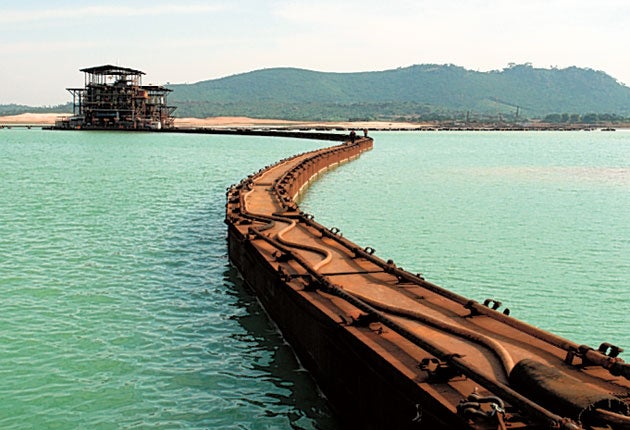Small Talk: Confidence on Aim is rising despite fear of Coalition cutbacks

George Osborne's axe is on its way and the doomsayers reckon that if applied too heavily, it could send the economy back into recession. But as reported in this column in recent months, the gloom appears to be lifting on the Alternative Investment Market (Aim). Several pieces of research have indicated that more companies are considering a listing or raising more money, and all the pointers show that confidence is on the up on the small-cap index.
The accountants at PricewaterhouseCoopers (PwC) affirmed the improved sentiment last week. The firm showed that in the quarter to the end of September, 12 initial public offerings (IPOs) had raised a total of £175m, up from the 10 IPOs in the previous three months that raised £133m.
"After the slow summer months, caution among the investor community seems to be lifting," said David Snell, PwC's head of Aim. "The increase in offering value and number of IPOs since the last quarter is positive and could signal the beginning of a recovery on Aim."
Of the 12 new listings, eight raised new money. The biggest deal was £50m raised by NBNK Investments, a bank chaired by Lord Levene, the chairman of Lloyd's of London. NBNK Investments is planning to turn itself into a major player on the UK banking scene and has its eyes on bits of Northern Rock, or as many as 600 Lloyds Banking Group branches.
The quarter was more cheerful for Aim than it was for the main market, which suffered a slowdown between July and September. In the three months to the end of September, main-market IPOs raised £1.4bn, through 20 new listings, compared with the £2.5bn raised through 27 new deals in the previous quarter.
Settlement is good news for Titanium
Finally, some good news for Titanium Resources, the Aim-listed exploration group that digs around in the countryside of Sierra Leone for rutile and ilmenite.
Last week, Sierra Rutile, a subsidiary of the miner, which claims to be the country's biggest private-sector employer, reached a deal with the government in Freetown to settle a long-running loan dispute.
In short, the row related to loans given to the company by the government, which were then immediately recalled by it when a dredge owned by Titanium collapsed, causing irreparable damage. The group was left in something of a bind, leaving the shares 26 per cent lower in the past 12 months.
Under the terms of the agreement reached last week, the Sierra Leone government will invest £13.6m of the loan into approximately 113.7 million new ordinary shares at an issue price of 12p each, a 60 per cent premium to Titanium's closing share price on 6 October. The result will be that the Sierra Leone government will own 22.8 per cent of the group's enlarged issued share capital.
Despite becoming partly state-owned, its chief executive, John Bonoh Sisay, remained upbeat. "The company wishes to thank the government of Sierra Leone for its positive approach in resolving this matter quickly and amicably," he said. "This agreement strengthens our partnership with the government and ensures we are fully aligned in developing a strong [Sierra Rutile]. The company can now focus its efforts on expanding production and developing its assets towards their considerable potential."
Coal miner ATH hit by dividend cut
The unions are rousing themselves for a big old fight over the impending public-spending cuts. Some commentators have suggested the soon-to-be-introduced austerity measures, which will be outlinedby Chancellor George Osborne this month, could lead to a wave of strike action across Britain, the like of which has not been seen since 1984 when the miners went out in their masses.
Of course, history shows us that it was Mrs Thatcher's government which won the battle with the miners, effectively bringing the industry to a close in the UK. Well, not quite. A number of coal miners still exist in the UK, including the small-cap ATH Resources, which runs surface mines in Scotland.
Sadly, the group's share price suffered something of a hiccup last week when it said that it planned to slash its full-year dividend by about half after a rise in start-up costs at its new Netherton mine, and that it planned to lower prices for its sales contracts.
ATH said it would pay a final dividend of 2p a share, bringing the full-year dividend to 3p – not bad for an Aim-listed company, but well below the 6.15p a year ago.
Subscribe to Independent Premium to bookmark this article
Want to bookmark your favourite articles and stories to read or reference later? Start your Independent Premium subscription today.

Join our commenting forum
Join thought-provoking conversations, follow other Independent readers and see their replies